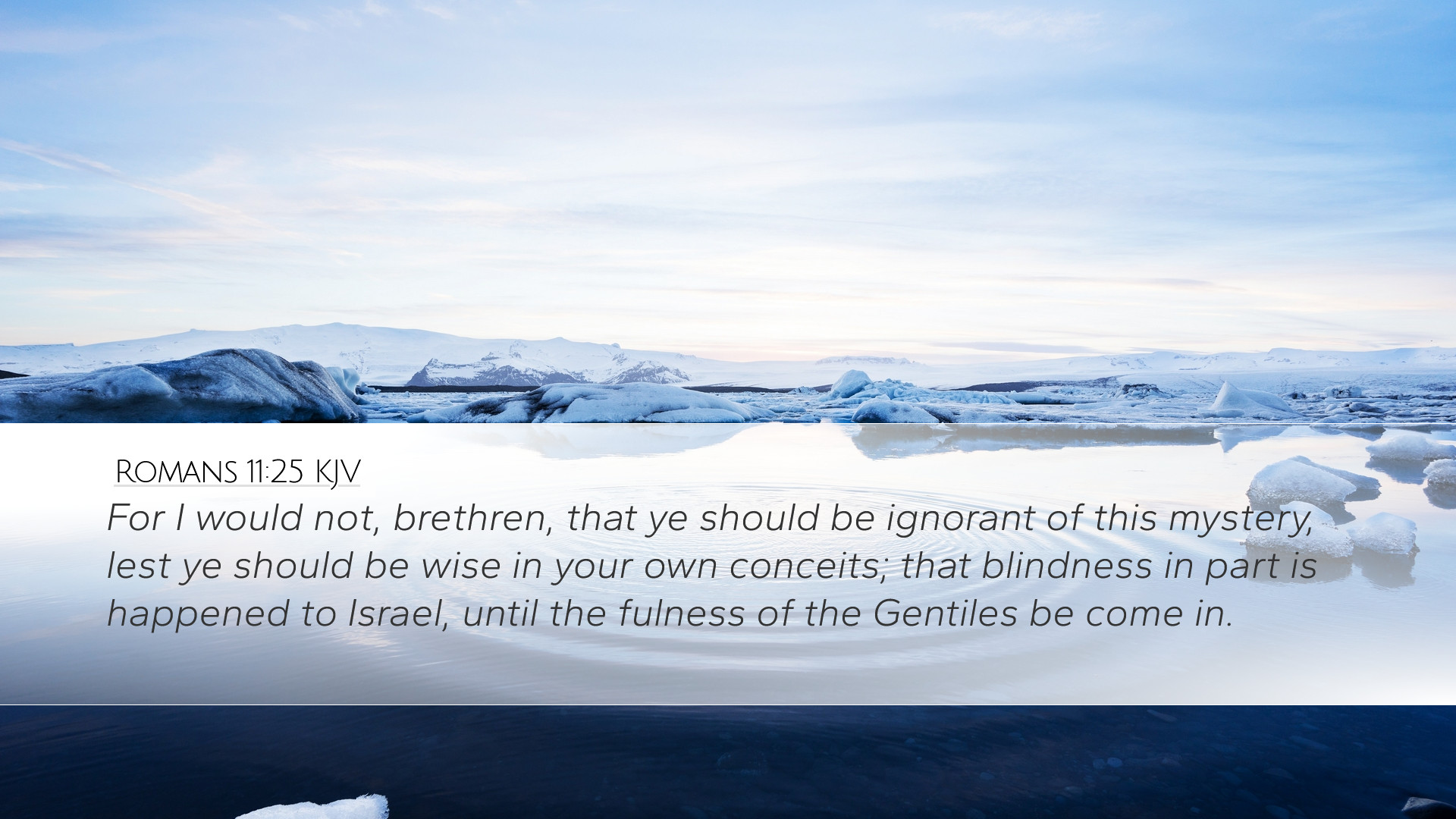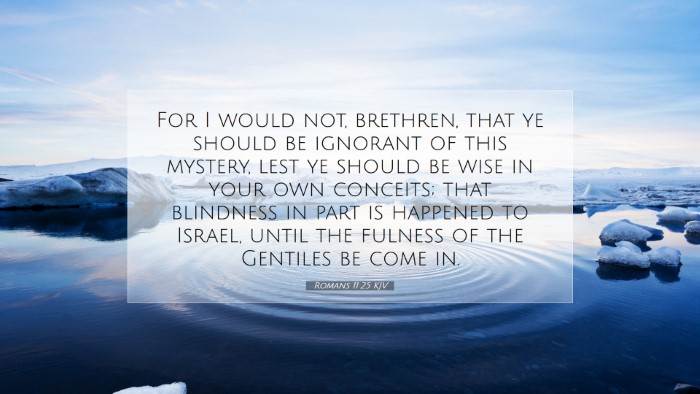Commentary on Romans 11:25
Romans 11:25 states:
"For I do not desire, brethren, that you should be ignorant of this mystery, lest you should be wise in your own opinion, that blindness in part has happened to Israel until the fullness of the Gentiles has come in."
Introduction
This verse is a critical point in Paul's discourse regarding Israel's relationship to God and the unfolding redemption plan through Jesus Christ. It reveals the mystery of partial blindness that has befallen Israel while simultaneously highlighting God's purpose in the inclusion of the Gentiles.
Exegesis of the Text
Mystery of Faith
Paul emphasizes the term "mystery," which pertains to divine truth that was once hidden but now revealed. This revelation is essential for understanding the dynamics between Israel and the church. Matthew Henry remarks that through the gospel, both Jew and Gentile are called into one body, yet this body is distinct from the former dispensations.
Partial Blindness
The phrase "blindness in part has happened to Israel" encapsulates a significant theological reality. Albert Barnes notes that this blindness is not total; a remnant still believes. This partial hardening refers to God’s sovereign choice to allow some to reject the gospel, resulting in a divine plan that facilitates the evangelization of the Gentiles.
Until the Fullness of the Gentiles
Paul contemplates the period during which this condition of blindness will persist. Clarke interprets "the fullness of the Gentiles" as the completion of God's plan of salvation for non-Jews. God is gathering a people from all nations, which speaks to His grace and purpose beyond Israel alone.
Theological Implications
God's Sovereignty
This verse delineates that God is sovereign over the process of salvation history. Both Henry and Barnes agree that the partial hardening of Israel serves a greater divine purpose. God's ways are sovereign and mysterious, leading to the eventual fullness where all who are ordained to salvation shall come to faith.
Gentile Inclusion
The inclusion of Gentiles into the fold of God opens the discussion on God’s universal plan. Adam Clarke emphasizes the global scope of redemption, and that Gentiles are not merely an afterthought but essential to God's divine agenda. This inclusion affirms the unity of believers across cultural and ethnic lines.
Warnings Against Arrogance
Paul's caution against being “wise in your own opinion” speaks to the danger of arrogance that can arise from spiritual complacency. It serves as a warning for the Gentile believers not to boast against the branches (the Jews), which is a reoccurring theme throughout Romans that warns against spiritual pride.
Pastoral Applications
- Embrace Unity: Pastors should guide their congregations to embrace both Jew and Gentile believers, recognizing the church as one body in Christ.
- Encourage Humility: As Paul instructs, believers should remain humble, understanding that their faith is a gift and not a result of merit.
- Promote Evangelism: The understanding of God's desire to bring in the fullness of the Gentiles motivates believers to participate in the mission of spreading the gospel.
- Teach the Sovereignty of God: Beasts should teach that God is ultimately in control, and His plans are perfect, helping the community to trust in His timing.
Conclusion
Romans 11:25 encapsulates critical truths about God's redemptive work. This verse connects Israel's past with the church's future, showcasing the beautiful tapestry of God's sovereign plan. The implications of this passage resonate deeply with our understanding of divine grace, humility, and the shared mission of proclaiming the gospel to all people.


